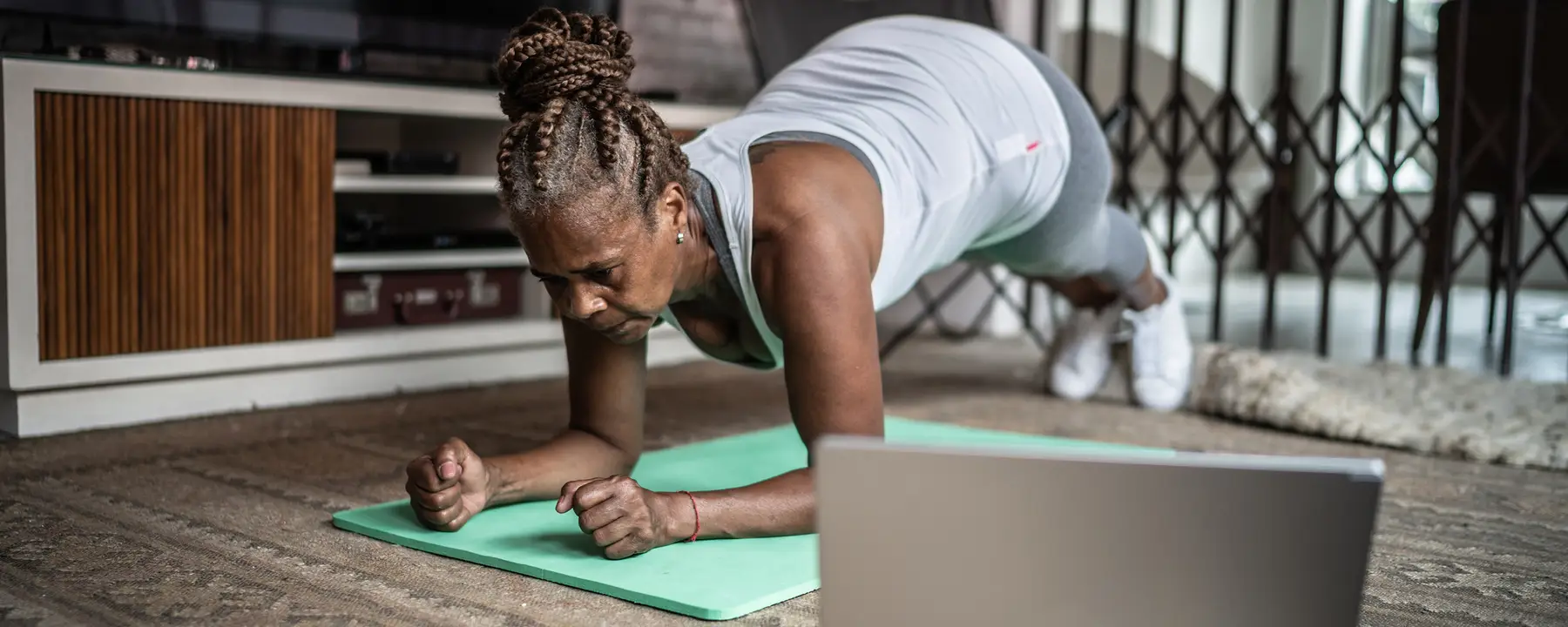Implementing Arthritis-Appropriate, Evidence-Based Interventions via Zoom and YouTube
Objective
To evaluate remote exercise classes for older adults with arthritis.
Approach
We evaluated arthritis appropriate evidence-based interventions (AAEBIs) offered remotely at nine local park and recreation agencies and created a best practice guide for those interested in providing remote programs in the future.
Impact
This project documented the benefits of remote exercise programs for people who cannot attend in person or are limited by physical barriers and serves as a guide for future remote AAEBI programs.
According to the Centers for Disease Control and Prevention (CDC), over 22% of the U.S. population lives with arthritis, limiting their mobility and overall quality of life. The CDC estimates that the number of arthritis-diagnosed adults will increase from 58 million to 78 million over the next 20 years. The CDC recommends that those living with arthritis engage in moderate physical activities and self-management programs referred to as Arthritis Appropriate Evidence-Based Interventions (AAEBIs).
With funding from the CDC, the National Recreation and Park Association (NRPA) has provided the delivery, training, and support to local park and recreation agencies in the United States that are interested in promoting AAEBIs in their communities since 2016.
AAEBI Goes Remote During COVID-19 Pandemic
In 2020, local park and recreation agencies were forced to temporarily stop or limit attendance at their AAEBI programs due to the COVID-19 pandemic, leaving many older adults managing their arthritis on their own. While the pandemic affected most individuals, it was especially difficult for America’s older adult population. Not only did they have a higher risk of catching the novel virus, but a review of published literature revealed that during the pandemic older individuals experienced a reduced quality of life caused by a decrease in social interactions and physical activities. The problem created an immediate call to action from the NRPA to address these unique barriers.
Implementing Remote Exercise Programs for Arthritis
Between 2020 and 2021, the NRPA recruited nine local park and recreation agencies representing seven states to implement one of four AAEBIs remotely: Walk With Ease, Fit & Strong!, Active Living Every Day, and Enhance®Fitness. These agencies were in the following cities:
- Tualatin, Oregon
- Liberty, Missouri
- Patterson, California
- Riverside, California
- Southgate, California
- Mustang, Oklahoma
- Manchester, Tennessee
- Fort Payne, Alabama
- Shreveport, Louisiana
Evaluating Remote Arthritis Intervention Programs
RTI has been evaluating the NRPA’s AAEBI delivery programs since 2017. Our team interviewed nine managers from the participating park and recreation agencies to evaluate the remote delivery pilot. The interviews addressed planning and implementation of the program, marketing and recruitment, community and participant needs, challenges of implementation and benefits of remote delivery, and sustainability.
Out of the nine participating agencies, eight hosted their arthritis exercise programs through Zoom and one agency uploaded prerecorded videos to YouTube. The results from the program were overwhelmingly positive. Those with arthritis were able to manage their symptoms with AAEBI and maintain social interaction without leaving their home.
One program leader interviewee stated the program’s remote advantages: “We’ve had a great amount of positive feedback about increasing the digital literacy of our community because of offering these programs remotely… One of our biggest findings was that we reached a group of people that were never active before or were never involved because they were home bound.”
Local park and recreation agencies also shared feedback based on participants’ evaluations. The program reached groups that typically did not attend in-person gym classes. A participant said, “I really enjoyed the class. My husband says that he notices the changes in me. I feel physically stronger. I didn’t think I would like taking exercise classes in the gym, so this was perfect.”
Because of the overwhelmingly positive results of the pilot program, the nine park and recreation agencies plan to maintain their remote or hybrid programs in the future regardless of the pandemic environment. Findings from this project informed the development of Remote Physical Activity Programs for Older Adults: A Guide to Planning and Implementation, led by NRPA and RTI. This practice guide encourages participation among other local park and recreation agencies across the United States to further create remote solutions for those managing arthritis.
- National Recreation and Park Association (NRPA)

